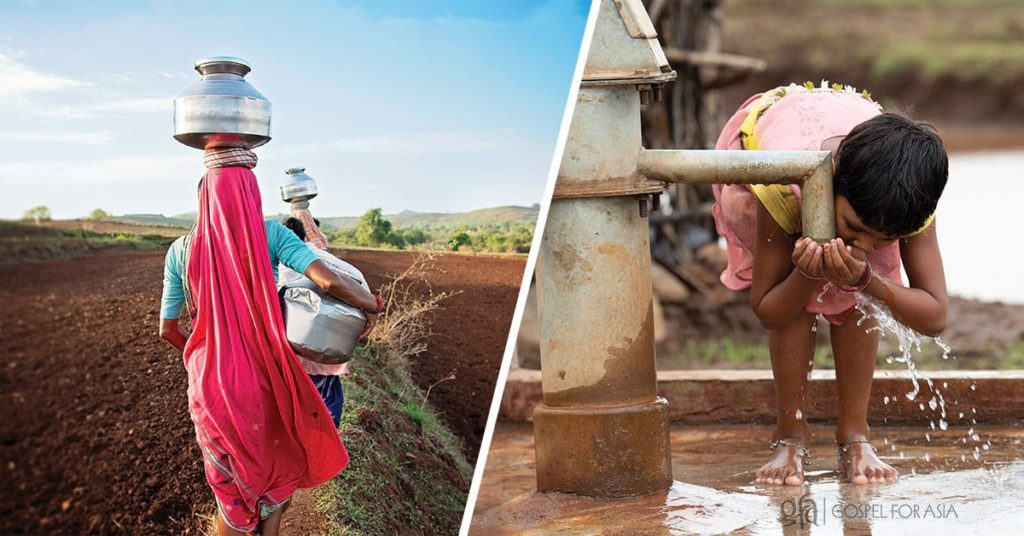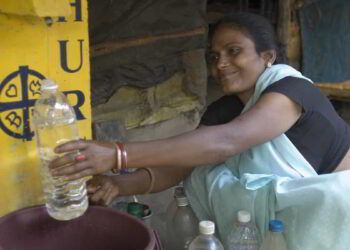Vimal grew up in an agrarian village where most of the locals were farmers, relying on small ponds to irrigate their fields and sustain their livestock. Women relied on the single water well in the village, almost a mile away, for their daily cooking, bathing and cleaning needs. To get enough water for these tasks, they and their children made four or five trips to the well every day, carrying heavy buckets of water on their heads. Drought, Death Are Frequent Visitors Every March through May, drought settled in Vimal’s area, exasperating their water crisis by drying up the small ponds and turning the fields to dust. No longer able to water their cattle in the little streams and ponds in the fields, Vimal and the other farmers of the village brought their livestock to join the women and children at the well, swelling the line waiting for water. Bickering often broke out in these long lines because villagers were convinced their own needs were greatest. During the dry season, there was not enough water to go around, and villagers had to forgo bathing and limit cooking. The lack of access to clean water filled the village with tension and illness. Several years ago, Vimal’s relative became sick because of the unsafe water coming from the well.
“[My relative] complained of stomach pain,” Vimal shares. “He suffered for more than two months, and the problem started to grow even worse. After two months, he passed away because of stomach pain and, I believe … consuming unsafe water.”
Read the rest of the story on gfa.org
Learn more about how to provide clean water to families and villages through Jesus Wells and BioSand Water Filters.
Go here to know more about Gospel for Asia: Radio | About | Integrity | Facebook | Lawsuit











